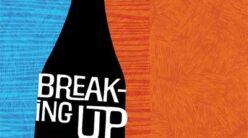 When the media calls on laughter expert Lee Berk, he turns the Q&A format around to toy with them a bit.
When the media calls on laughter expert Lee Berk, he turns the Q&A format around to toy with them a bit.
"Where do you think this concept of laughter being good medicine comes from?" he asks.
Many reporters guess the concept comes from the popular health- and humor-oriented Reader"s Digest magazine.
The associate professor at Loma Linda University in La Jolla, California, surprises them by crediting King Solomon.
Thousands of years ago, the wise man penned Proverbs 17:22: "A cheerful heart is good medicine, but a crushed spirit dries up the bones."
Scientifically proving the proverb remains inconclusive. But Berk, who teaches at the university’s School of Allied Health, presented a paper in 2006 at the American Physiological Society's experimental biology session in San Francisco asserting more. He and his colleagues found that even anticipating mirthful, laughter-producing experiences can boost a positive neuroendocrine/hormone response.
They studied 16 healthy, fasting men who neither used supplemental medications nor exercised the day before, both of which could bias the experiment. Test subjects then selected their favorite funny video, and three days before the study they were randomly assigned to watch the video or to read magazines in the waiting room as the control group.
Researchers took blood samples from both groups before beginning the experiment to get a baseline reading of hormones thought to influence mood and immunity. They also drew blood four times during the hour-long session and three times afterward.
Analysis of those blood samples showed that the subjects looking forward to watching a funny movie produced an average of 27 percent more beta-endorphins (a mood elevator) and 87 percent more human growth hormone (an immunity booster) as compared to the control group.
Berk’s findings add to growing research that shows how humor—either experiencing it or looking forward to it—can boost wellness, disease prevention, and stress reduction.
"We need to use humor to support these things—hope, optimism, and expectation—as an apothecary for the patient," he said.
Humor as Complementary Therapy
Credible national organizations such as the American Cancer Society (ACS) buy into the premise. Because laughter seems to release substances in the brain that can reduce pain and stress, the ACS considers humor therapy a complementary treatment method.
Some hospitals, such as Shady Grove Adventist Hospital in Rockville, Maryland, have used humor therapy on patients in the the oncology ward and found it beneficial not just for them but for employees as well. They reported that the complementary therapy actually minimized employee burnout and attrition.
Learning to Laugh
Humor therapy sparked clinical curiosity after 1964, when longtime Saturday Review editor Norman Cousins began writing about how he trained himself to laugh to battle heart disease and a painful spine condition. The journalist, also an adjunct professor of medical humanities for the School of Medicine at the University of California at Los Angeles, watched Marx Brothers films to get drug-free pain relief.
Ultimately, Cousins concluded that fostering a positive attitude, love, faith, hope, and laughter could fight illness as much as stress; and a negative outlook could cause vulnerability to it.
Other laughter researchers doubt the validity of such broad-brushed conclusions given the lack of corroborating scientific humor therapy studies.
For instance, those who cultivate a sense of humor and laughter may be less likely to be sick. But that could be because people who are healthy have more to laugh about or have a personality that helps them cope better in general, according to Robert R. Provine, professor of psychology and neuroscience at the University of Maryland, Baltimore County, and author of Laughter: A Scientific Investigation.
The Laughter Movement
Despite its incomplete scientific profile, public demand for humor-based programs keeps growing in and out of hospital settings.
For instance, Adventist La Grange Memorial Hospital in La Grange, Illinois, hosts a Chuckles Club once monthly. Members tell jokes, share funny stories, and trade wit to laugh for the health of it.
Laughter supporters commonly assert that manufacturing the sound of laughter can jump-start genuine laughter and promote the related health benefits. So even making yourself laugh may help you start feeling better.
Many motivational speakers also encourage people to hunt daily for humor and to laugh every day, since it encourages the kind of positive outlook that is good for health, business, and relationships.
"Laughter is the great connector. If you think something's funny, it’s even funnier when you share it," said Chip Lutz, a motivational speaker and president elect of the Association for Applied and Therapeutic Humor, based in Aliso Viejo, California.
Berk"s only laughter-related restriction is to avoid demeaning or derogatory jokes: the misuse of humor won’t make you feel better. But for all other things that can provide a bit of mirth and merriment, go ahead and laugh. It"s good medicine.
Pam Mellskog is a health writer living in Erie, Colorado.
Pam Mellskog is a health writer living in Erie, Colorado.







1 thought on “Good Medicine”
topcat
(June 17, 2010 - 10:10 am)A really well focused and balanced article – well done and keep it going
Comments are closed.